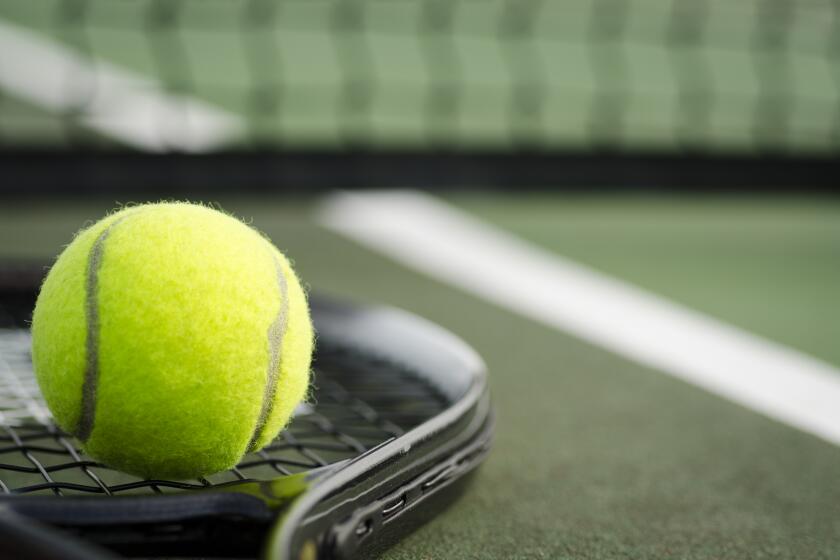NCAA: Too Timid
- Share via
The campaign to clean up the scandals that taint intercollegiate athletics is moving forward, but the occasional signs of progress should not blur the fact that more needs to be done.
Meeting this week in San Diego, the annual convention of the National Collegiate Athletic Assn. agreed to hold a special session in June at which it will take up a series of new reform proposals drawn up by a special commission of college presidents whose membership includes Chancellors Michael Heyman of UC Berkeley and Charles E. Young of UCLA. The special convention will discuss regulations to help reduce abuses in the recruiting of high-school athletes, especially by overzealous team boosters who are not formally affiliated with universities, and proposals to reduce the cost of college athletic programs--by, for example, limiting practice sessions, the length of playing seasons and the number of coaches who can be hired.
All these reforms would be useful follow-ups to the actions taken at NCAA meetings the last two years, at which the association stiffened academic requirements for student athletes and ordered random drug testing for participants in major college sports. Those reforms forced several star basketball players to sit out the current season in order to get their grades up, and led to the disqualification of some football players from recent bowl games.
But there is one more important step that the NCAA and even the presidents’ commission seem reluctant to consider: eliminating freshman eligibility in certain high-visibility sports like football and basketball. The single most effective move that the NCAA could make to put college athletics back into proper perspective would be to keep first-year students out of such high-pressure sports until they have first proved that they can do college-level academic work.
Some officials of the NCAA argue that the association must now take time to assess all the changes that have taken place over the last two years. Better to use the momentum developed in that time to push for even more reform. For even as the reforms made in the recent past have taken effect, new athletic scandals have surfaced to embarrass universities that are otherwise respected. There is a serious possibility, for example, that Southern Methodist University in Dallas will be barred from fielding a football team in the near future because team boosters gave money and other favors to star players. And the recent death of University of Maryland basketball star Len Bias from a cocaine overdose, and the subsequent revelation that he had hardly studied during his last year at school, should serve as a tragic reminder of how an overemphasis on college athletics can have a negative effect on even the most talented student athlete.
More to Read
Go beyond the scoreboard
Get the latest on L.A.'s teams in the daily Sports Report newsletter.
You may occasionally receive promotional content from the Los Angeles Times.










